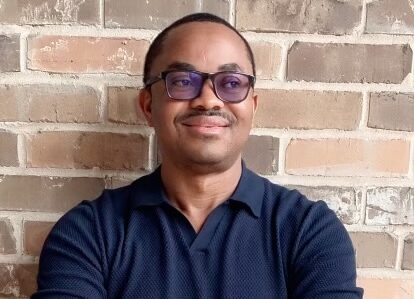A friend of mine visited from Nigeria not too long ago. He runs an oil servicing company back home and arrived in Houston with the usual armour of his tribe; a MacBook, headphones, and a half-dozen Slack channels humming with activities. On the second day, his lifeline to his company crashed. We spent hours on the phone with Apple support and then at the gleaming Apple Store, only to be told the repair would cost almost as much as a new laptop.
Chinedu walked out of the store disappointed, wondering how a company could have such a hard time fixing its own product. A week later, back in Enugu, someone suggested he try the “laptop doctors” at Ogbete Main Market. Out of desperation and hoping to preserve his data, he ducked into a cramped stall where a self-taught artisan dismantled and resurrected the MacBook in under an hour, charging less than the equivalent of ten dollars. No slick Genius Bar, no official certification, just skill honed through trial, error and a kind of reverse engineering that borders on sorcery.
That scene is no fluke. Across Nigeria, thousands of young men and women with little formal training are pulling off feats like this every day, fixing circuit boards, coding apps, launching fintech start-ups, or building music empires from improvised studios. They are doing it in a system that is adversarial and often feels designed to stop them. The constant power outages, unstable policies and scarce credit would crush less determined people. But the Nigerian youth adapts.
If there is no incubator space, they convert a restaurant backroom. If there is no broadband, they pool funds for a generator and a dedicated line. If no one will hire them, they teach themselves to code from YouTube and Twitter threads. Out of this harsh soil a kind of ingenuity blooms.
It is no accident that Afrobeats, once dismissed as street noise, now fills arenas from London to Los Angeles. Or that fintech names like Flutterwave, Paystack and Interswitch process billions of dollars and attract global investors. These successes come from the same survivalist DNA as the laptop doctors in Ogbete. They reflect a generation that has refused to wait for permission and instead builds out of nothing; music, code, businesses and communities.
Even the language around them shows this reinvention. “Tech bro” started life as a Silicon Valley caricature — the hoodie-wearing young man flush with venture capital and a dash of arrogance. In Nigeria it has been remixed with local spice. A tech bro might be a remote developer earning in dollars, a start-up founder pitching at Eko Hotel, or a self-taught hardware repairer at Computer Village. The term carries a sense of hustle, resourcefulness and new-money swagger; the MacBook, the co-working pass, the habit of tweeting about “building” and “shipping” while sprinkling in pidgin slang.
Women have claimed their space too, often affectionately called “tech sis” or even “sis bro,” a playful badge of belonging in a male-dominated world. Here the label is less about arrogance and more about survival mixed with ambition. A Lagos tech bro may still be dodging potholes and power cuts on the way to his co-working space. A Kaduna tech sis might be coding at night while holding down a day job as a teacher.
A lot of this energy is locked up in Lagos. Yaba’s so-called “Yabacon Valley” with Co-Creation Hub and its Andela alumni is still the beating heart, but vibrant scenes have sprouted across the country. In Enugu, Kingsley Eze, CEO of Tenece Holdings, runs the Genesys Tech Hub, supporting technology and digital skills development for young people. In Port Harcourt, organisations like Ken Saro-Wiwa Innovation Hub and Start Innovation Hub are nurturing developers and digital entrepreneurs in the Niger Delta.
Kaduna has CoLab and the Kaduna ICT Hub producing some of the North’s best coders, while in Kano the iHatch programme at the National Digital Innovation & Entrepreneurship Centre and the Focus Hub give young people a shot at launching their own start-ups.
Walk into one of these spaces and you find teenagers learning Python after school, founders building payment apps, designers sketching interfaces between power cuts. These places are more than shared offices. They are sanctuaries where young people find mentors, collaborators and the validation missing from mainstream Nigerian society.
When I think back to my friend’s experience, a thousand-dollar problem solved for under ten dollars, I see a parable about hidden genius. It is easy to dismiss Nigerian youth as mere hustlers or digital cowboys, but look closer and you find a national ecosystem of problem-solvers.
There’s an image I can’t shake when I think of Nigeria’s young people: a baby impala dropped into the savannah, wobbling on fragile legs as its mother disappears into the tall grass. In those first moments, the calf either finds its feet or is eaten by predators. That is the Nigerian youth story in miniature. Born into a country brimming with corruption and hemmed in by power cuts, strikes, and unemployment, they have only seconds to get their act together or be swallowed by an unforgiving system. And yet, like that impala, they stand, wobble, and run.
Like the impala calf, they have been forced to sprint early. Some will stumble; some will be devoured by the harshness around them. But many will outrun the predators and build new paths for themselves and the country. Whether they call themselves tech bros, sis bros or simply hustlers, they are living proof that Nigeria’s future is not just a demographic statistic but a creative force already at work.
In a world that underestimates them, these young Nigerians have become their own ecosystem, innovating, collaborating, and sprinting ahead like impalas on a perilous plain. And that, my friends, more than any policy speech or development plan, is what gives me hope.
Osmund Agbo is a US-based medical doctor and author. His works include Black Grit, White Knuckles: The Philosophy of Black Renaissance and a fiction work titled The Velvet Court: Courtesan Chronicles. His latest works, Pray, Let the Shaman Die and Ma’am, I Do Not Come to You for Love, have just been released. He can be reached@ [email protected]










